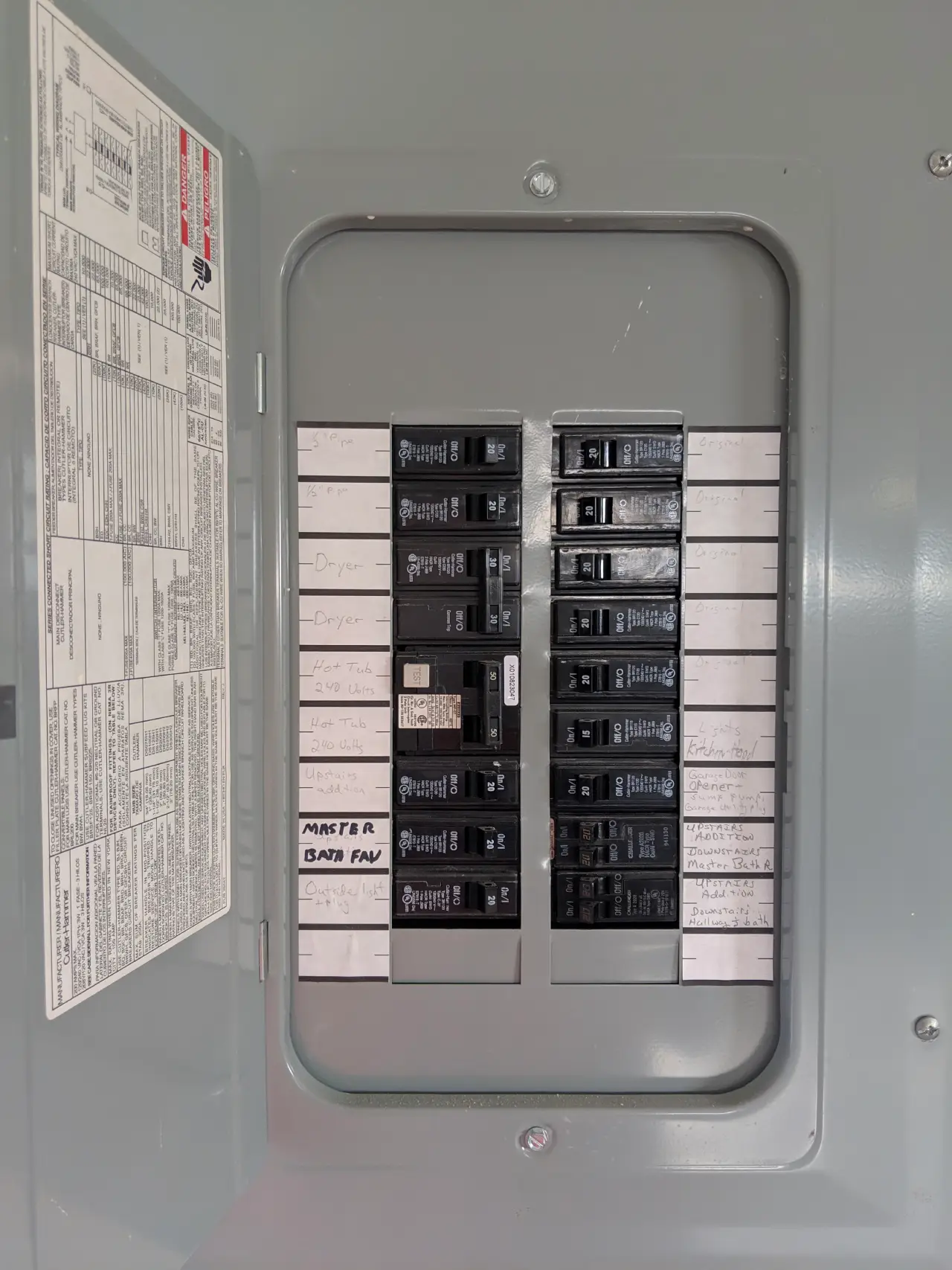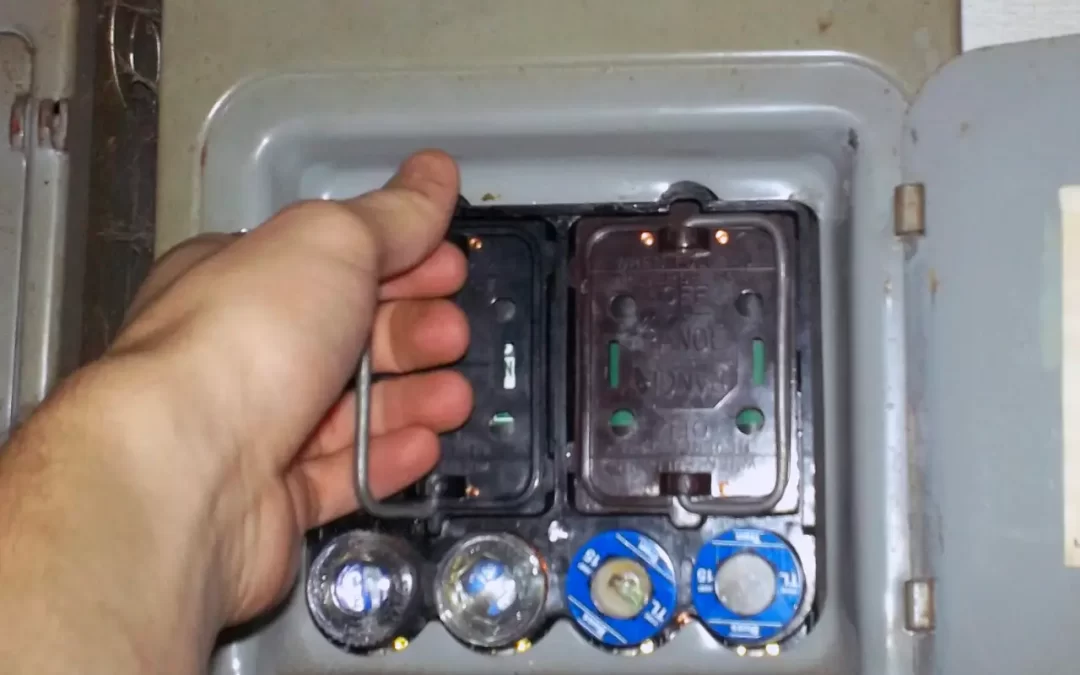1. Electrical Panel Replacement Introduction
What is an electrical panel?
So, you’ve probably heard the term “electrical panel” before, but do you actually know what it is? Well, an electrical panel, also known as a breaker box, is the heart and brain of your home’s electrical system. It’s where all the electrical circuits in your home come together and where the power is distributed throughout your house.
Signs that indicate the need for electric panel replacement
Just like our smartphones or cars, electrical panels can also wear out or become outdated. But how do you know when it’s time to replace your electrical panel? Look out for some telltale signs like flickering lights, tripped breakers, or frequently blown fuses. These indicators suggest that your panel might be overworked or struggling to handle the electrical demands of your home.
The importance of timely panel replacement
Now, you might be wondering, “Do I really need to replace my electrical panel? Can’t I just ignore the problem?” The short answer is no, you shouldn’t ignore it. An outdated or faulty electrical panel can put a strain on your entire electrical system, increase the risk of electrical fires, and even pose a threat to the safety of your home and family. So, it’s essential to address any panel issues in a timely manner.
Call us 321-674-9667
2. Factors Affecting the Cost of Electrical Panel Replacement
Age and condition of the existing panel
When it comes to determining the cost of panel replacement, the age and condition of your existing panel play a significant role. Older panels that are no longer up to code or in poor condition may require more extensive work or even a complete overhaul, leading to higher costs.
Size and capacity requirements
Another factor that influences the cost is the size and capacity of the new electrical panel. A larger panel with more circuit breakers will naturally cost more than a smaller one. Additionally, if you need to upgrade your panel to accommodate increased electrical needs, such as adding new appliances or expanding your home, it can also affect the overall price.
Location and accessibility of the panel
Consider the location and accessibility of your panel. Is it in a cramped space or buried behind a wall? If accessing the panel requires additional effort, like removing drywall or navigating through tight corners, it can add to the labor costs of the replacement.
Additional upgrades or modifications
Finally, any additional upgrades or modifications you want to include with the replacement will impact the overall cost. Whether it’s installing surge protection devices, adding dedicated circuits for specific appliances, or incorporating smart home features, these extras can increase the price tag.
3. Understanding the Different Types of Electrical Panels
Main types of electrical panels
When it comes to electrical panels, it’s not one-size-fits-all. There are a few different types to choose from, including the traditional circuit breaker panel, the sub-panel, and the fuse box. Each has its own pros and cons, depending on your specific needs and preferences.
Advantages and disadvantages of each panel type
The traditional circuit breaker panel is the most common choice for modern homes, offering convenience and ease of use. However, sub-panels can be useful in situations where additional circuits are needed in remote areas of your home, like a garage or basement. On the other hand, fuse boxes, although less common today, do have their own advantages, such as being cheaper and more resilient to power surges.
Selecting the right panel for your needs
Choosing the right panel boils down to understanding your electrical needs and consulting with a qualified electrician. They can assess your requirements, evaluate the pros and cons of each panel type, and guide you in making an informed decision that suits your specific circumstances.
4. Average Prices for Electrical Panel Replacement
Call us at 321-674-9667 for a free estimate when you go through us!
Factors influencing the cost
The cost of electrical panel replacement can vary depending on various factors. These factors include the size of the panel, the complexity of the installation, the region you live in (we’re in Florida so humidity et cetera needs consideration), and any additional upgrades or modifications you choose to include. It’s best to consult with us to get accurate estimates.
Cost breakdown for different panel sizes
As a rough estimate, the cost of replacing a 100-amp panel can range from $1,000 to $3,000, while a 200-amp panel replacement may cost between $1,500 and $4,000. Remember, these are ballpark figures and can vary based on the factors mentioned earlier.
Additional costs to consider
In addition to the panel replacement itself, there are a few other costs to keep in mind. These can include obtaining permits, potential upgrades to meet current electrical codes, additional labor or materials required for complex installations, and any extra features or improvements you opt for.
So, whether you’re dealing with a decades-old panel or need to upgrade your electrical system to meet your growing needs, it’s crucial to be aware of the factors that can affect the cost and understand the different types of panels available. With the right knowledge and professional guidance, you can ensure a smooth and safe electrical panel replacement process.replacement?
5. Hiring a Professional Electrician for Panel Replacement
When it comes to replacing your electrical panel, hiring a professional electrician is essential. Sure, you could try to DIY it, but let’s be real – messing around with electricity is not the time to show off your questionable handyman skills.
So why is it important to hire a licensed and experienced electrician? Well, for one, they know what they’re doing. They’ve spent years honing their craft and have seen every electrical problem under the sun. They know the ins and outs of panel replacement and can handle any unexpected issues that might arise. Plus, they have the necessary tools and equipment to get the job done safely and efficiently.
Before hiring an electrician, it’s important to ask a few questions to ensure they’re the right fit for you. Ask about their experience with panel replacements and if they have any references you can check. Inquire about their process, how long it typically takes, and if they offer any warranties on their work.
Oh, and don’t forget to check for proper certifications and insurance. The last thing you want is an electrician who isn’t properly licensed or isn’t covered by insurance. Trust me, you don’t want to be left holding the bag if something goes wrong.
6. Safety Considerations during Electrical Panel Replacement
When it comes to working with electricity, safety should always be a top priority. Before starting any electrical panel replacement project, make sure to turn off the power. It may seem obvious, but you’d be surprised how many people forget this step and end up with a shocking experience (pun intended).
Another important safety consideration is proper grounding and bonding. This ensures that any electrical current is safely directed to the ground in case of a fault. Proper grounding and bonding not only protects you and your family but also helps prevent damage to your electrical devices and appliances.
And of course, always adhere to safety codes and regulations. Electrical work is highly regulated for a reason – to keep you and your home safe. Make sure your electrician is up-to-date with the latest codes and follows them diligently. You don’t want to cut corners when it comes to electrical safety.
7. Tips for Saving Money on Electrical Panel Replacement
Let’s face it, electrical panel replacement can be a costly endeavor. But fear not, there are ways to save some green while ensuring your electrical system is up to par.
Consider discussing with your electrician if a panel upgrade or modification could be a viable option instead of full replacement. Sometimes, a simple upgrade or modification can solve the issue at a fraction of the cost. It’s worth exploring this possibility before committing to a full replacement.
Lastly, don’t be afraid to explore financing options or incentives. Some electrical companies offer financing plans that allow you to spread out the cost over time. Here at Cornelius Electrical Contractors, we provide you with Acorn Financial which has some terrific rates. Additionally, there may be government incentives or rebates available for upgrading your electrical panel. It never hurts to ask and see if you can save some money in the process.
Call us at 321-674-9667 for a free estimate when you go through us!
8. Frequently Asked Questions about Electrical Panel Replacement
Wondering how long the panel replacement process takes? It can vary depending on the complexity of the project and any unforeseen issues, but on average, it usually takes a few hours to a full day.
As for permits, it’s always a good idea to check with your local authorities. In many areas, permits are required for electrical panel replacements to ensure the work meets safety standards.
So, how do you know if you need a panel replacement? Look out for signs like frequent circuit breaker trips, flickering lights, or outdated panels. If your current panel is struggling to handle your electrical needs or is old and outdated, it’s time for an upgrade.
There you have it – some key points to consider when it comes to hiring an electrician, ensuring safety during panel replacement, saving money, and answering common questions. Now go forth and conquer that electrical panel replacement with confidence!In conclusion, electrical panel replacement is a crucial aspect of maintaining a safe and efficient electrical system in your home. By understanding the factors that influence the cost, exploring the different types of panels available, and hiring a professional electrician, you can ensure a smooth and successful panel replacement process. Remember to prioritize safety at all times and consider implementing cost-saving measures when possible. By taking these steps, you can enjoy the benefits of a reliable and up-to-date electrical panel that meets the needs of your household for years to come.

circuit breaker panel


